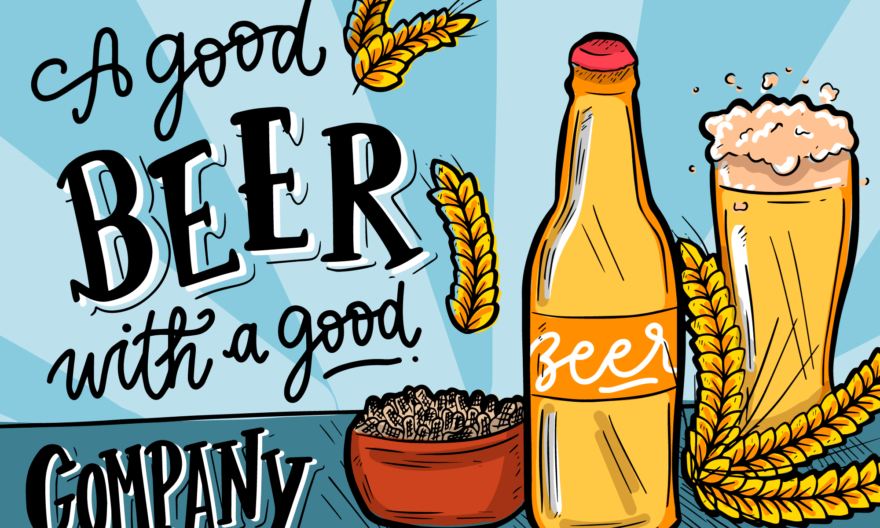
The health effects of beer consumption are complex. While moderate intake may have some potential benefits, excessive or binge drinking is linked to various negative outcomes. These include a higher risk of developing alcohol use disorder, depression, liver disease, weight gain, certain cancers, and even premature death.
It’s important to note that although moderate alcohol consumption might offer some advantages, you can achieve similar health benefits by following a nutrient-rich diet that includes whole foods like fruits and vegetables.
When comparing standard beer to light beer, both provide similar levels of vitamins and minerals. However, light beer contains fewer calories and slightly less alcohol, making it a better option if you’re choosing between the two.
Some people also question whether drinking beer after a workout aids recovery. While some research suggests that low-alcohol beer with added electrolytes may enhance rehydration, other studies indicate that alcohol can impair muscle growth and recovery.
Ultimately, non-alcoholic electrolyte drinks are a more effective way to rehydrate post-workout.
Beer, like many alcoholic beverages, can have both positive and negative effects on health, depending on how much and how often it’s consumed. Here’s a breakdown of some of the potential benefits and risks of drinking beer:
Potential Benefits of Beer (in moderation):
- Heart Health: Moderate beer consumption (about one drink per day for women and up to two for men) has been associated with a reduced risk of heart disease. Beer contains antioxidants, such as polyphenols, that may help protect the heart by reducing inflammation and improving cholesterol levels.
- Bone Health: Beer is a source of dietary silicon, a mineral important for bone health. Moderate beer consumption has been linked to increased bone density, which may reduce the risk of osteoporosis.
- Kidney Health: Some studies suggest that moderate beer consumption may reduce the risk of kidney stones due to its high water content and the effect of hops on kidney function.
- Nutrient Content: Beer contains small amounts of vitamins and minerals like B vitamins (e.g., B6, B12, niacin, and riboflavin), potassium, and magnesium, which are beneficial in small amounts.
- Social Benefits: Moderate drinking can be part of social bonding and may have psychological benefits, such as reducing stress or promoting relaxation.
- Beer has plenty B vitamins: Beer, especially unfiltered or lightly filtered beer, turns out to be quite nutritious, despite the years of suppression of those facts by various anti-alcohol groups. Beer has high levels of B vitamins
Risks of Beer (especially in excess):
- Weight Gain and Obesity: Beer is calorie-dense, and consuming large amounts can contribute to weight gain and obesity. The term “beer belly” refers to weight gain often linked to high beer consumption.
- Alcohol Dependency: Regular consumption of beer or any alcohol can lead to alcohol dependence or addiction, which has severe health and social consequences.
- Liver Damage: Excessive alcohol consumption is a leading cause of liver disease, including fatty liver, alcoholic hepatitis, and cirrhosis.
- Heart and Brain Issues: While moderate alcohol consumption might have heart benefits, heavy drinking is linked to high blood pressure, stroke, and other cardiovascular issues. Alcohol can also impair brain function and long-term heavy drinking can increase the risk of dementia.
- Cancer Risk: Heavy alcohol consumption is associated with an increased risk of several cancers, including mouth, throat, liver, colon, and breast cancer.
Though beer is often viewed as empty calories, it contains some minerals and vitamins.
Below is a nutrition comparison of 12 ounces (355 mL) of standard and light beer :
| Standard beer | Light beer | |
| Calories | 153 | 103 |
| Protein | 1.6 grams | 0.9 grams |
| Fat | 0 grams | 0 grams |
| Carbs | 13 grams | 6 grams |
| Niacin | 9% of the Daily Value (DV) | 9% of the DV |
| Riboflavin | 7% of the DV | 7% of the DV |
| Choline | 7% of the DV | 6% of the DV |
| Folate | 5% of the DV | 5% of the DV |
| Magnesium | 5% of the DV | 4% of the DV |
| Phosphorus | 4% of the DV | 3% of the DV |
| Selenium | 4% of the DV | 3% of the DV |
| Vitamin B12 | 3% of the DV | 3% of the DV |
| Pantothenic acid | 3% of the DV | 2% of the DV |
| Alcohol | 13.9 grams | 11 grams |
Conclusion:
Moderate consumption of beer can offer some health benefits, particularly for heart and bone health, but overconsumption can lead to serious health problems. The key is to drink in moderation—if at all—and to be mindful of the potential risks. Always consider your overall health, family history, and lifestyle when deciding whether or how much to drink.



